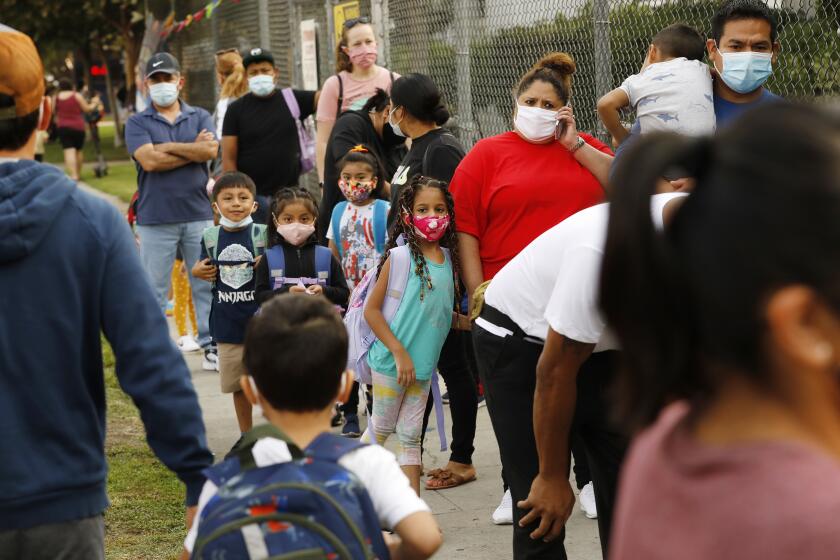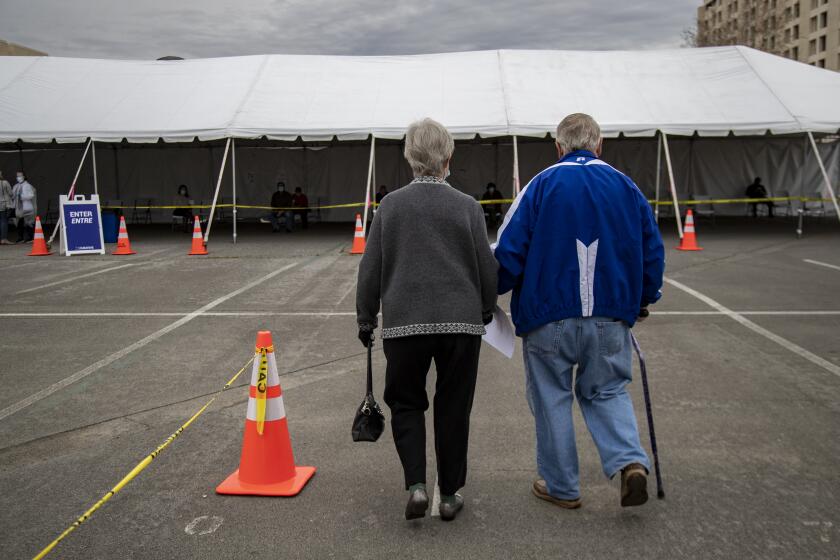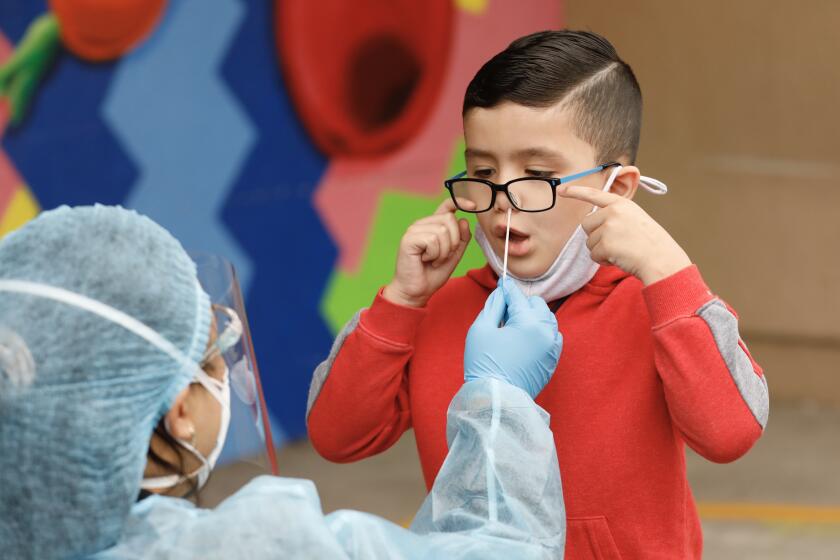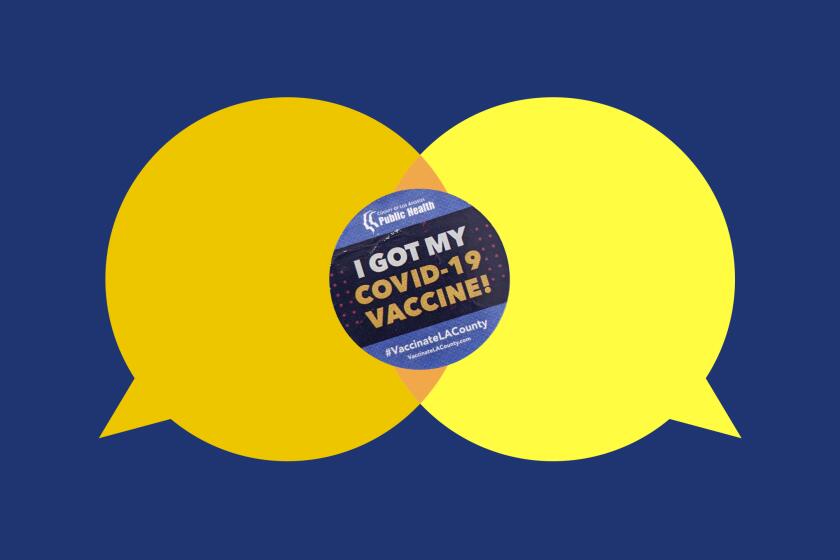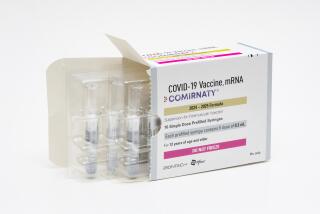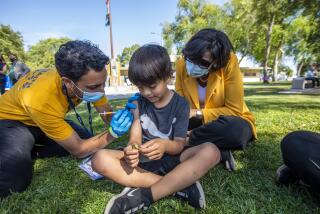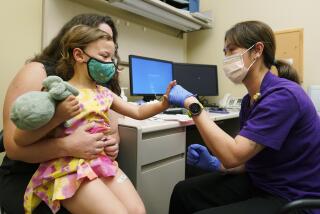What we know so far about COVID-19 vaccinations for kids
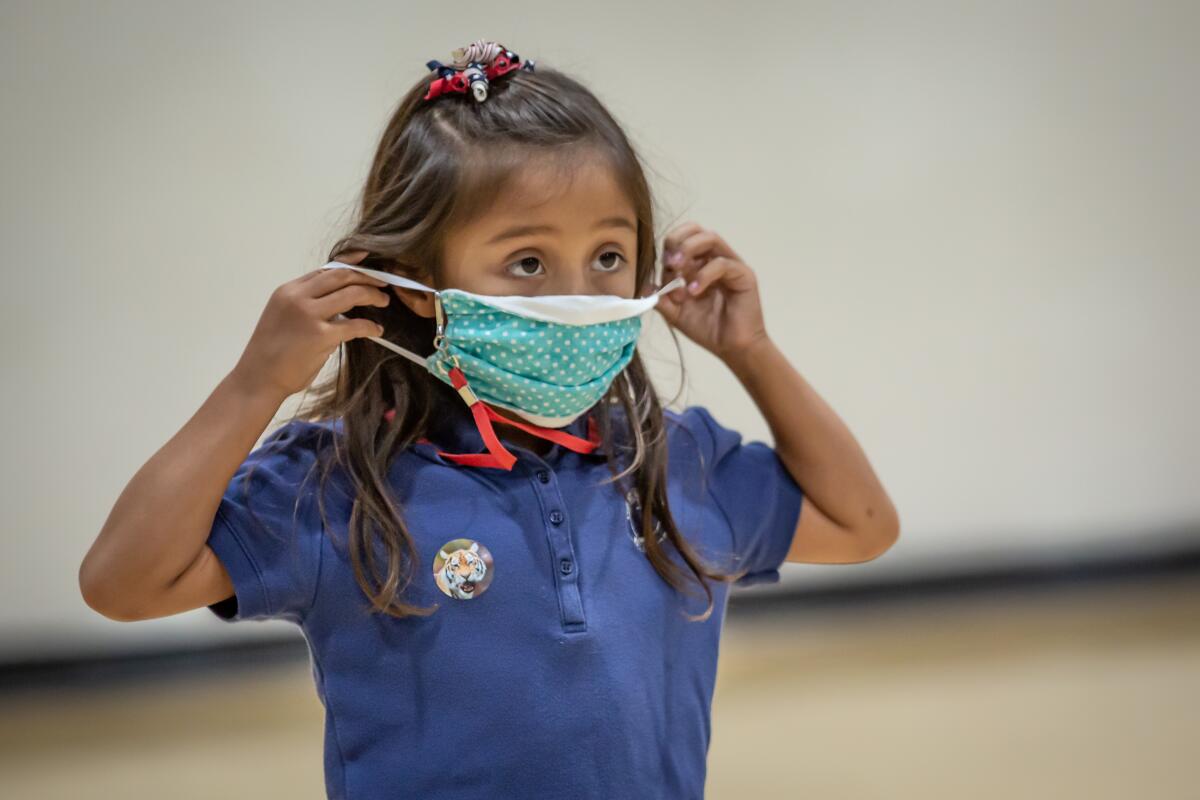
Pfizer says its COVID-19 vaccine is safe and effective in children ages 5 to 11, and that it plans to file for emergency-use authorization “in the coming weeks.”
The question on a lot of parents’ minds right now: When can my kid get one?
Millions of children have tested positive for COVID-19. At least 460 have died. Cases in children have accelerated during the Delta variant wave: As of Sept. 2, children made up 15.1% of reported cases over the duration of the pandemic; in just the week ending Sept. 2, they made up 26.8% of the total, according to the American Academy of Pediatrics. That represents a 250% increase in child cases since the week of July 22-29.
According to a report in the Atlantic, some parents have fudged their kids’ birth dates to get ones just shy of turning 12-years old their shots. (The FDA does not recommend this.) Others have sought doctors who are willing to vaccinate younger children via off-label use. (Also not recommended.) If the shot is approved for kids 5 to 11, those kinds of work-arounds will be moot.
Here’s what we know right now about the timeline to getting kids under 12 vaccinated.
Pfizer has filed an emergency use authorization application with the FDA for children ages 5 to 11 to receive the COVID vaccine. So when can your kid get one? Here’s what we know.
How close are we to a COVID-19 vaccine for kids?
On Sept. 20, Pfizer announced it will seek emergency-use authorization for its COVID-19 vaccine for children ages 5 to 11.
On Tuesday, the company offered an update, saying it has given the FDA the data on the phase 2 and 3 trials it conducted with children, although it hasn’t filed the emergency use application yet. Pfizer has said it plans to file for that authorization before the end of this month; a news release the company issued Tuesday said to expect the formal submission “in the coming weeks.”
There is no timetable for how long the approval process could take. For comparison, Pfizer submitted the vaccine for emergency-use authorization for adults on Nov. 20, 2020, and received that authorization three weeks later on Dec. 11. Full FDA approval was granted on Aug. 23, 2021. The AP reported that a person familiar with the matter but not authorized to discuss it publicly said shots could be available around Thanksgiving or possibly earlier in November, depending on how quickly the FDA moves to review the application and data.
On Monday morning, Centers for Disease Control and Prevention Director Dr. Rochelle Walensky told ABC the agency was “enthusiastically awaiting” that information.
“As soon as [the vaccine data] get submitted to the FDA, I know the FDA is urgently planning to review these data, it will go from the FDA to the CDC, and we will review it with similar urgency,” Walensky said on ABC’s “Good Morning America.” “And I’m hoping in the order of weeks.”
The FDA’s vaccine chief said earlier this month that he is “very, very hopeful” that vaccines will be authorized and rolled out for children ages 5 to 11 by the end of this year. In the same interview, he said once the FDA receives data from Pfizer, “we’re going to do a thorough job on that as quickly as we can” and come to a decision “hopefully within a matter of weeks rather than a matter of months.”
It used to be hard to find a vaccine appointment. Not any more. Here’s how to get your COVID-19 shot.
What about Moderna and Johnson & Johnson?
The Moderna clinical trials for kids 6 to 11 are underway. In July, the New York Times reported that the Pfizer trials were moving faster than its mRNA vaccine competitor’s.
The Johnson & Johnson vaccine has emergency-use authorization for people 18 and older. As of this month, the drugmaker is in Phase 3 of clinical trials to test its vaccine on adolescents ages 12 to 17.
Now that Comirnaty has full FDA approval, doctors can recommend the COVID-19 shot to anyone for ‘off-label’ use, including children under 12.
When will kids under 5 be able to be vaccinated?
Pfizer had said in July that it expected to have results for the trials on kids 5 to 11 by September, children ages 2 to 5 soon after that, and infants and toddlers 6 months to 2 years old in October or November. It has come through on those first results, with no reported delays in trials for any of the younger age groups. Moderna said it also plans to run trials for children as young as 6 months.
So the answer is: Those trials are ongoing. We should know more in the next month or two.
You want them to get vaccinated. They don’t. Now what? Tips from experts to have a conversation that could possibly change their mind.
More to Read
Updates
6:04 p.m. Sept. 28, 2021: Update: This story has been updated to note Pfizer has submitted the data to the FDA.
2:46 p.m. Sept. 27, 2021: This story has been updated with new information from Pfizer’s chief executive about when data will be submitted to the FDA.
